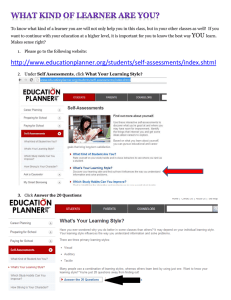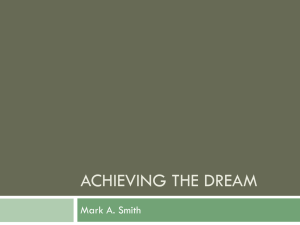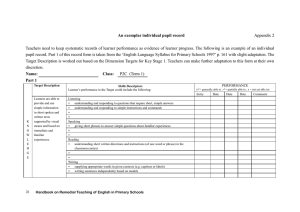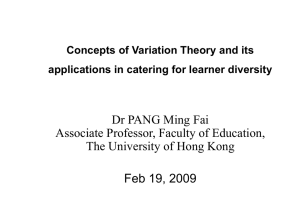Getting Started Designing Your Online Class
advertisement
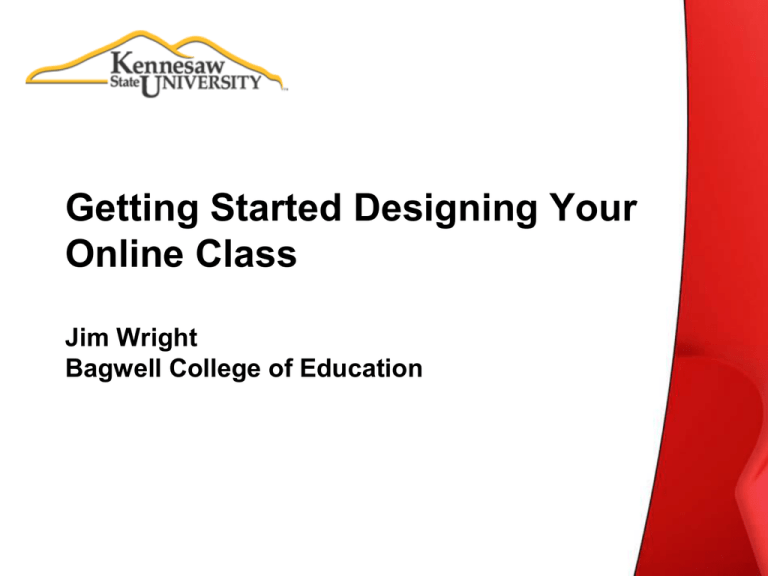
Getting Started Designing Your Online Class Jim Wright Bagwell College of Education Problem Statement • How do we become better facilitators of knowledge? • But also, help students become selfdirected learners? • In face-to-face and online instruction (Conrad & Donaldson, 2004) Framework for Online Learning • Constructivism, social cognition, problem based learning, and collaboration • We learn through interactions with others (Dewey, Bruner, Vygotsky, and Piaget) • Aligned with PTEU CF • Malcolm Knowles – idea of self-directed learning with adult learner Model of Online Learning Seven Principles for Good Practice in Undergraduate Education 1. 2. 3. 4. 5. 6. Encourages contact between students and faculty Develops reciprocity and cooperation among students Encourages active learning Gives prompt feedback Emphasizes time on task Communicates high expectations 7. Respects diverse talents and ways of learning Chickering, A.W., and Gamson, Z.F. (1991). Applying the Seven Principles for Good Practice in Undergraduate Education. New Directions for Teaching and Learning. Number 47, Fall 1991. San Francisco: Jossey-Bass Inc. Sloan-C Effective Online Practices (Lorenzo & Moore, 2002) Engaging Online Learners Resource Conrad, R., & Donaldson, J. A. (2004). Engaging the Online Learner: Activities and Resources for Creative Instruction San Francisco: Jossey-Bass. Key Elements of Engaged Online Learners • Students establish own learning goals • Students work in groups • Explore resources to answer meaningful questions • Multidisciplinary, authentic activities • Reflective Activities • Assessment is ongoing and performance based (Johnson, 1998) Collaborative Development Model Subject Matter Expert Instructional Designer Technical Developer (Programmer) Designing your course 3 Stages of “Backwards” Design 1. Identify desired results 2. Determine acceptable evidence 3. Plan learning experiences and instruction. (Wiggins & McTighe, 1998) What is in a Good Online Course? • Online Course Checklist from The University of West Georgia What is Quality Matters™? Quality Matters (QM) is a faculty-centered, peer review-based process that is designed to certify the quality of online courses. KSU model for online quality. Eight Standards 1. Course Overview and Introduction 2. 3. 4. 5. 6. Learning Objectives Assessment and Measurement Resources and Materials Learner Interaction Course Technology 7. Learner Support 8. Accessibility Free Online Resource How to build an online course? http://moodle.ksuettc.org/course/view.php?id=92 “Guest Login” Questions or Comments

